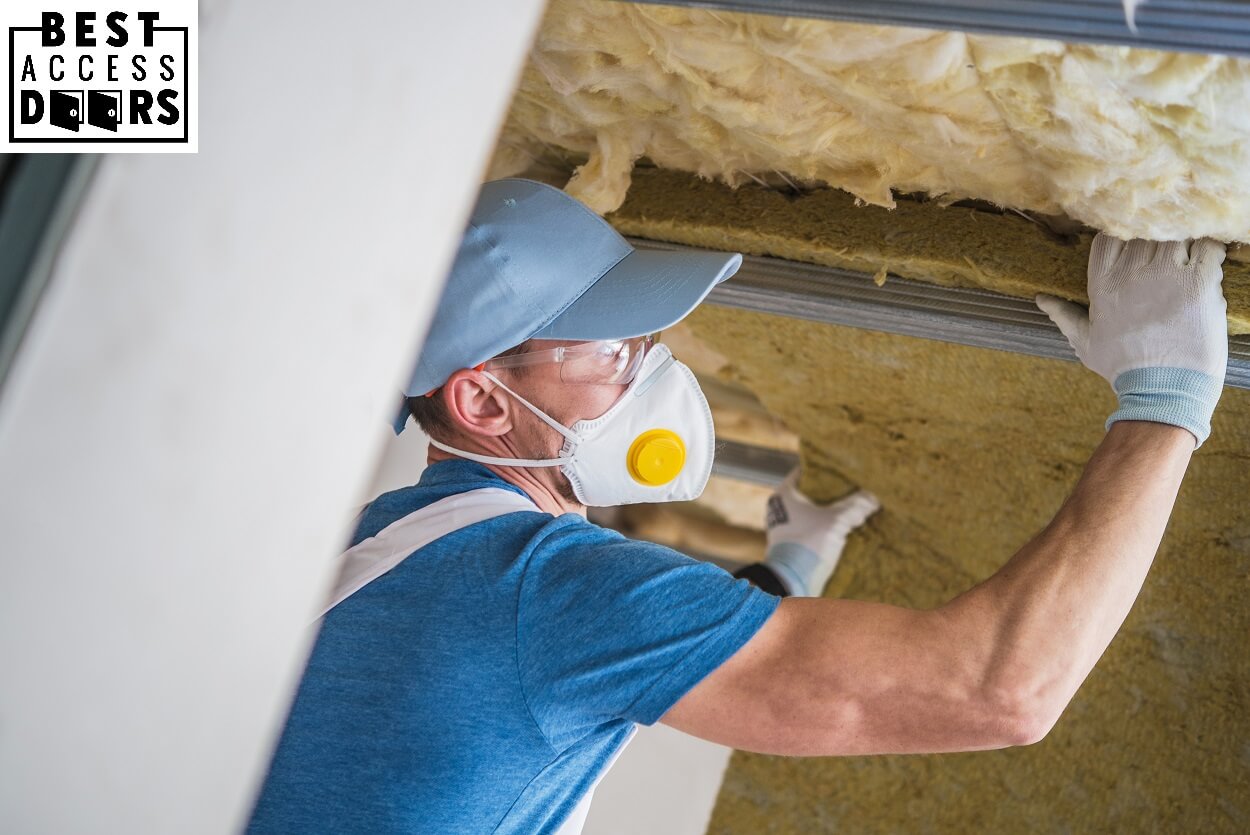Different Types of insulation And Their Benefits
Posted by Best Access Doors on 9th May 2018
Ask any contractor what is essential in any building – industrial or commercial and they will tell you insulation. Insulation serves many purposes from adding an extra layer between spaces to being an alternative method of soundproofing an area.
Best Access Doors lists the different types of insulation as well as listing their benefits to why they are a contractor’s choice selection.
Batts and Blankets
Many buildings residential or commercial, one can expect to find batt or blanket insulation behind the walls. This choice of insulation is so common that they are purchased as rolls making them easy to transport from floor to floor or site to site. While this is a common and popular choice for a contractor – it is unfortunately one type of insulation that can lose its effectiveness faster than others.
Fiberglass
Is just as popular as the common batt and blanket form of insulation – this type of insulation is one that is used between studs and joists. It is also commonly used in walls, floors and ceilings – making it a great solution for keeping those energy bills down. One of the disadvantages that comes from using fiberglass is that whether it’s a contractor installing or a specialist it requires special equipment during installation. When it comes to cutting and fitting fiberglass insulation, it is versatile enough that it does not require any special material. The standard price for fiberglass is approximately 30 cents per square feet.
Rockwool
An ideal choice for spaces that require a fire-resistant insulation – the best part when it comes to installation of rockwool there is very little that needs to be done as it can go into place without the assistance of staples or any form of stud. The down fall of this fire-resistance of insulation is that it can retain moisture making it prone to mold growth. Despite this potential health hazard – this insulation is made from nearly 90% recycled material, making it a great selection for the environmentally conscientious contractor and client. Compared to fiberglass, this is slightly more expensive, at nearly 60 cents per square feet.
Cotton Batt
Similar to fiberglass, cotton batt commons in rolls for easy transport and is easy to manager. It is also a great for use around pipes. In comparison to most fiber glasses, cotton batt is not easily accessible not to mention that it is the costlier of most insulations on the market. While not entirely fire retardant, it does possess a type of chemical which can deter certain pests and mold. Cotton batt is a common choice of insulation for behind walls – whether it maintain temperature or to indirectly act as a means of sound reduction between rooms or spaces. This type of insulation can cost up to 90 cents per square feet.
Loose Fill
This is one of the lighter alternatives of insulation to work with, making it a great choice for attic or ceiling insulation. Due to its lightweight attribute, it can lose its insulation in colder temperatures. While preventing heat loss and be maintained with the added layer of a cloth or sheet to prevent the air flor – this insulation is typically just used for ceilings. The purchase of loose fill is approximately 30 cents per square feet.
Loose Fill Cellulose
This is essentially a grade higher than its predecessor, loose fill. It is a type of insulation where it’s effectiveness can be improved with temperatures. While this is a benefit – it is not an ideal choice for attic insulation as it is can be heavy on the frame and bearings. This type of insulation can be used between walls, attic floors (not to be confused with ceilings) as well as hard to reach and access areas. Loose fill cellulose is only slightly more expensive than loose fill at 31 cents per square feet.
Open-Cell Polyurethane Spray Foam
Unlike the previous types of insulation, open-cell is ideal for the prevention of air flow or leaks; however, it does allow for some water vapor to flow through which can result or promote mould growth. This is also an insulation that requires professional or a specialist for installation. This insulation is great for walls, floors and ceilings; however, it is pricier than other forms of insulation at upwards of $1.20 per square feet.
Whether you are seeking to incorporate insulation or selecting the ideal product for your project, such as the BA-DWT Super Insulated Crawl Space Access Door, Best Access Doors provides valuable tips to assist you in making informed decisions that align with both your needs and budget. For additional tips and a glimpse at our extensive range of insulated access panels, including the BA-DWT, we invite you to visit our blog.
Share our story - get our 2024 Catalog for FREE!

